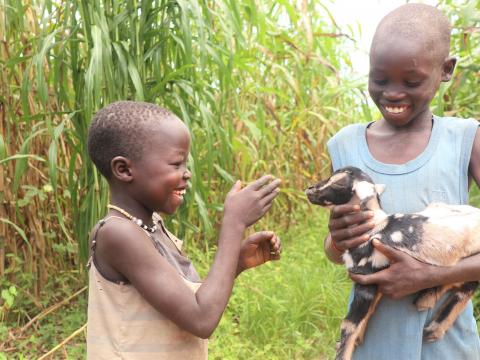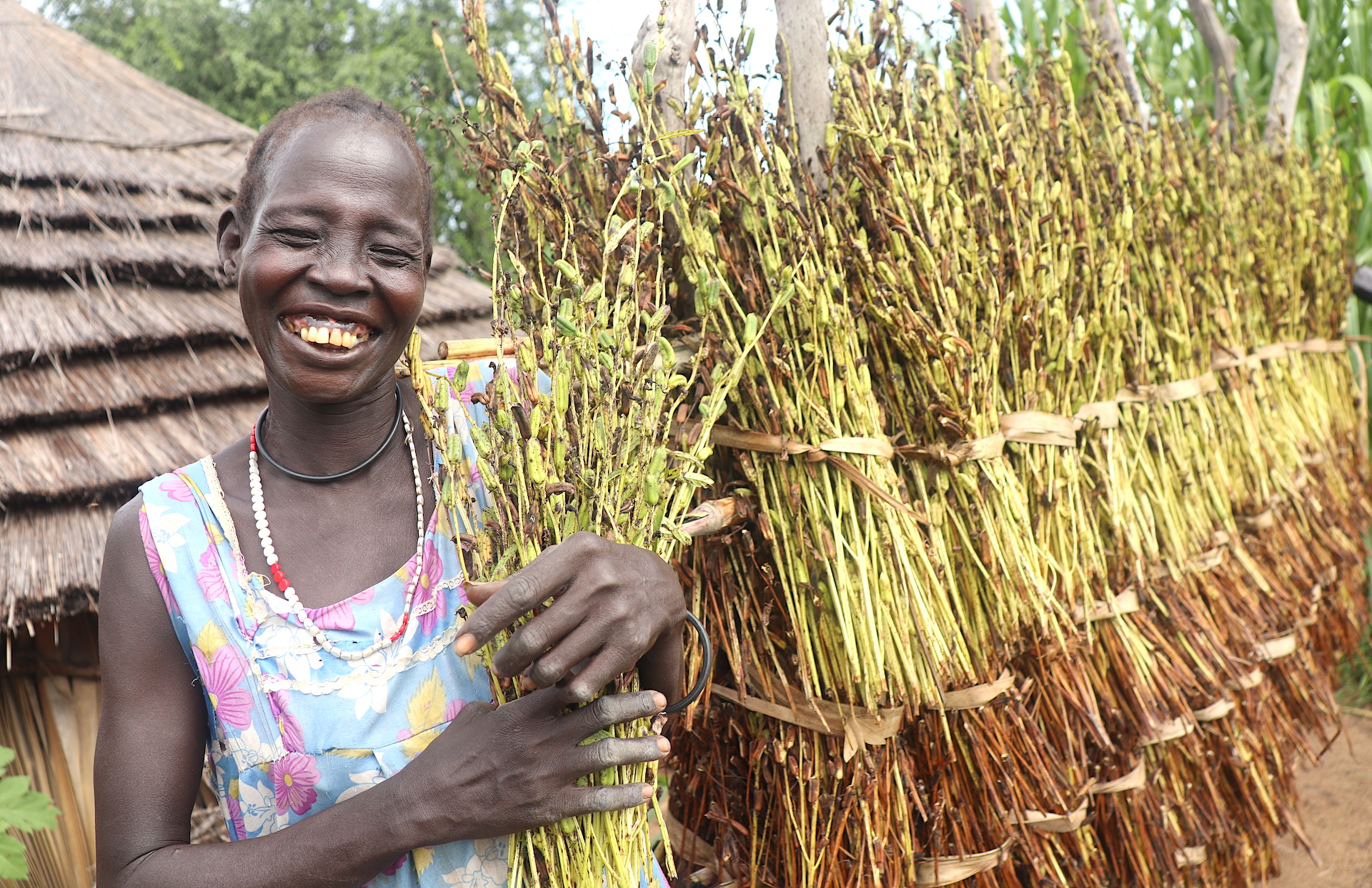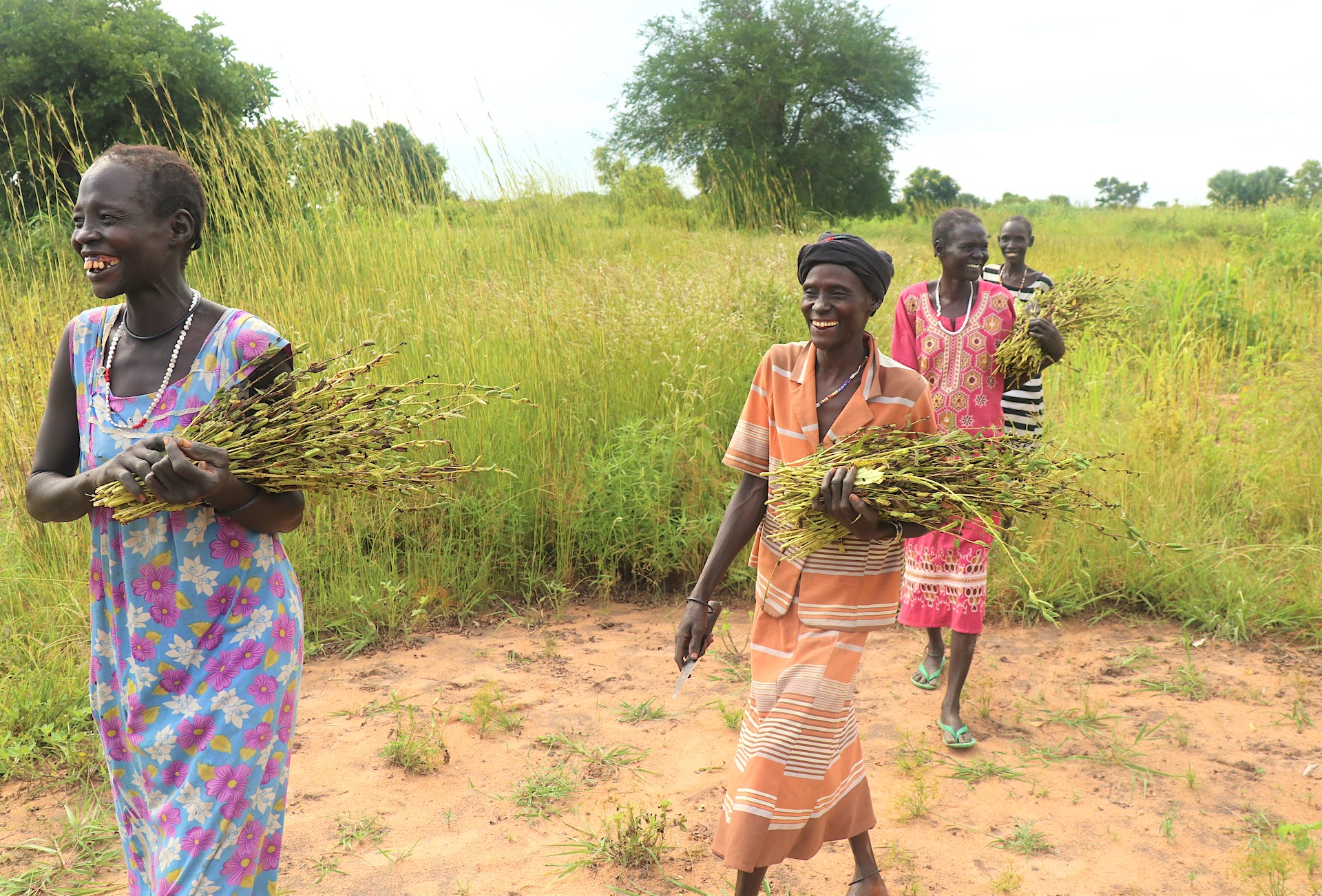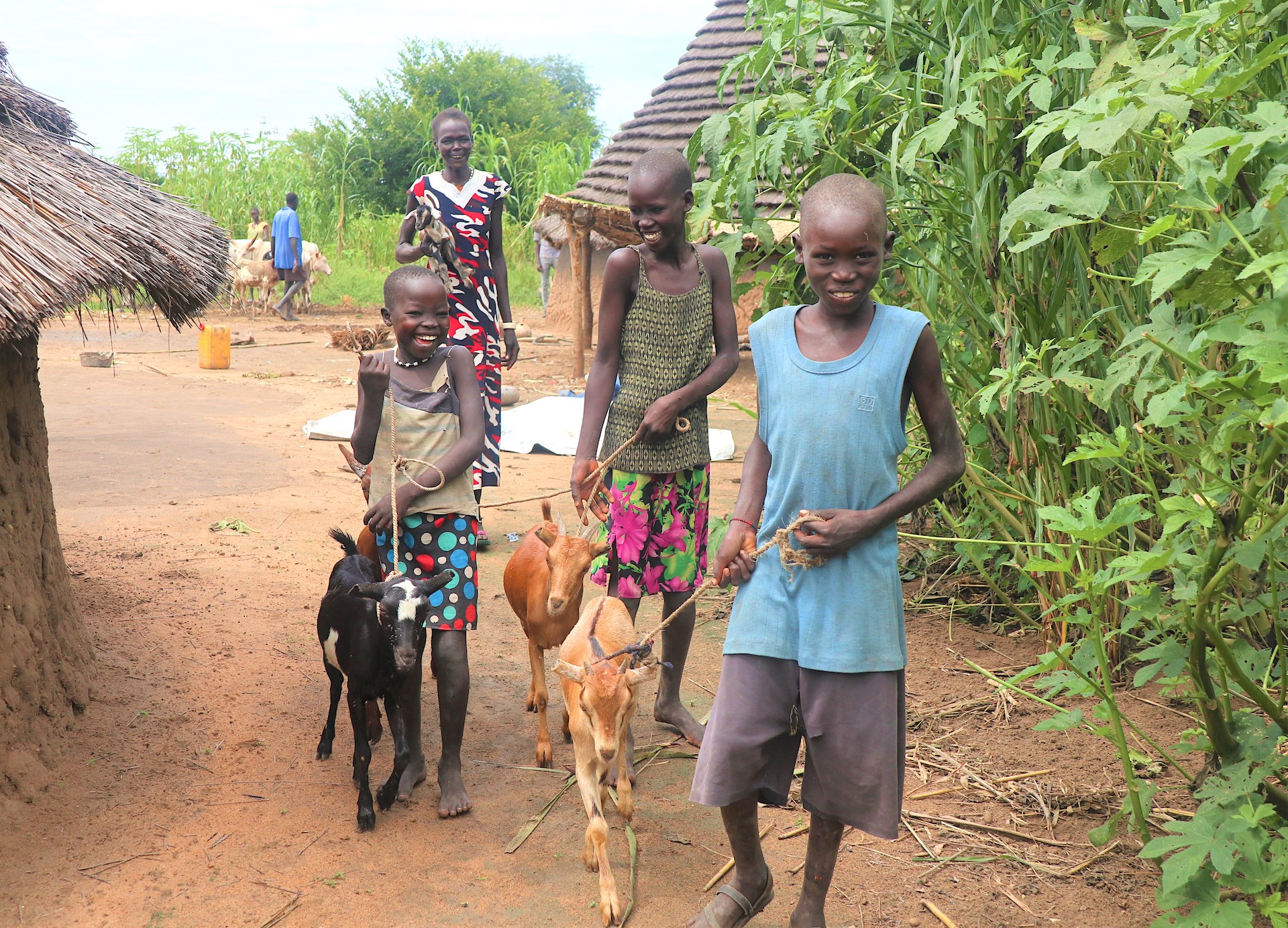Over 49,000 farmers in South Sudan’s Warrap State stop hunger through improved farming skills

“We were subsistence farmers before World Vision introduced us to large scale agriculture that helped improve our skills,” says Atong Reec Athian, 34.
The mother of four is among the 49,038 people supported by World Vision’s Food for Assets Project in partnership with the World Food Programme (WFP). The project covers Gogrial East, Tonj East, and Tonj North counties in South Sudan’s Warrap State.
World Vision initiated organizing project management committees that monitor and mobilize farmers in the communities. Atong shares, “I didn’t realize the importance of the project until one of the members approached me to join. I never thought it was possible to address the hunger gap my family suffered for years.”

Aside from improved farming skills, the project provides seeds, farm tools, and watering cans. She says, “On the first year, I harvested three bags at100 kgs each of sesame seeds, three bags of sorghum and a variety of vegetables. I am happy and really appreciate World Vision for everything they do for people like me.”
The FFA Project targets vulnerable households with a family member who can participate in the project activities that produce communal assets like feeder roads, shallow wells and flood control dykes that benefit the entire community.
According to Atong, the members sell a bag of 50 kgs of sesame at SSP15, 000 (around US$30) each during the peak season. In every harvest, they save seeds for the next planting season and stock for food. She adds, “In a span of three years of being part of the project I purchased two bulls and five goats. This is a very big achievement for my family.”
Warrap Zone’s Food Assistance Manager Ekra Komenan shares, “The FFA Project targets vulnerable households with a family member who can participate in the project activities that produce communal assets like feeder roads, shallow wells and flood control dykes that benefit the entire community.”

Komenan added that the project also train participants in improved agronomic practices, seedling production, environmental rehabilitation, and other cross cutting issues like child protection, campaigns on gender-based violence and awareness on the pandemic. “This will equip people to be self-reliant and resilient”, he says.
Atong is part of the group of 25 farmers, each owning one feddan of land, and working together. She expresses, “I am excited that we are given the opportunity to learn new skills, earn income, and take care of our families.”

Story and photos by Scovia Faida Charles Duku, Communications Coordinator